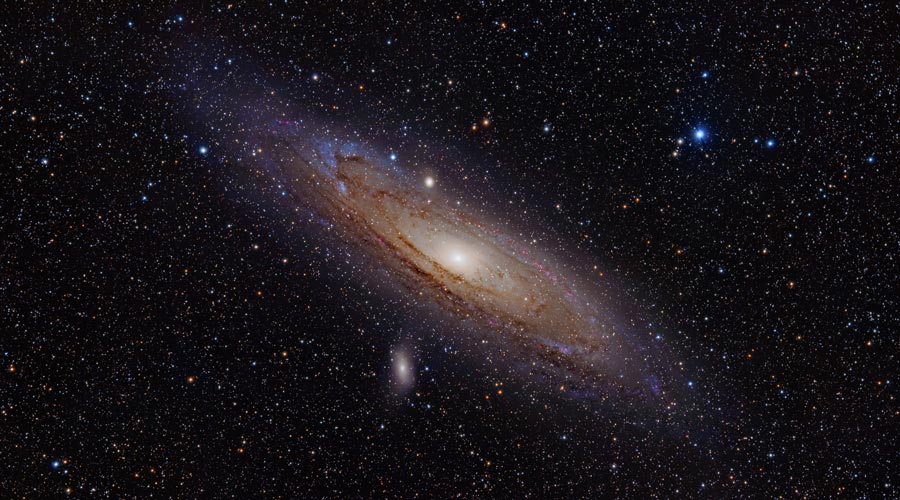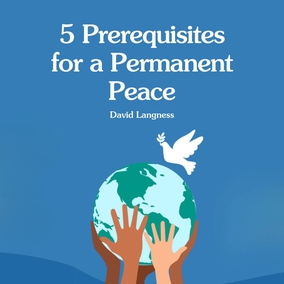The views expressed in our content reflect individual perspectives and do not represent the authoritative views of the Baha'i Faith.
I love awesomeness. I don’t mean the current usage of the word, which you’ve likely heard describing the most mundane, not-very-awesome kinds of things. The other day, after eating a meal at a restaurant, I handed my payment for the bill to our server, and he said “Awesome!”
Hardly, I thought. Actually, not even close.
True awe occurs when you experience a sense of reverence, fear, inspiration and wonder—all at once. When you see something that deeply affects your inner being, your life opens up to a feeling of enormity. Awe has its roots, I suspect, in the new perceptions of childhood, when we stare for the first time, wide-eyed and stunned, at a fireworks display or the birth of an animal or the Grand Canyon. We all love whatever sparks that sense of surprise and wondrousness in our hearts, minds and souls.
This facility has always been with us:
From different excavated art pieces and implements, from crude frescoes on the walls of caves, from the skeletons found in various places is clearly indicated that inherent in the very centre of man’s being, there always has been an inner urge impelling him to look beyond his sense perception, beyond his consciousness to a Creator, an urge to implore that Creator for help in time of trouble, and guidance in time of danger. Our ancestors worshipped this Creator in the storm, the lightning, the famine, the sun, moon, comets, eclipses—in anything that inspired awe and wonder. – Ruth Moffett, The Dynamics of Prayer, Star of the West, Volume 10, p. 47.
As a kid, I first got my sense of awe and wonder when I looked up at the stars. I knew I couldn’t see God, so looking up at God’s infinite creation seemed like the next best thing.
So much awesomeness happens as you gaze upon the infinite universe, but it has a philosophical trade-off: it can make you feel pretty small. In fact, it can make you feel downright insignificant. Probably millions of us have studied the night sky and had this troubling thought: “How can my tiny, short, unimportant life have any possible meaning in comparison to this immense infinity?”
Have you ever felt that way? I have, on many, many nights.
Since I became a Baha’i, though, my awe at the universe has gone through a definite metamorphosis. Rather than experiencing a personal sense of insignificance, I now look up at the sky on a starry night and try to imagine the Creator of this endlessly creating and creative cosmos. I know that my imagination can’t perceive even a miniscule fraction of the reality of that creation; which tells me the Creator will forever remain beyond my mind’s ability to comprehend—but I still love to try. That, it seems to me, defines our spiritual quest:
…how can the human reality, which is limited, comprehend the eternal, unmanifest Creator? How can man comprehend the omniscient, omnipresent Lord? Undoubtedly, he cannot, for whatever comes within the grasp of human mind is man’s limited conception, whereas the divine Kingdom is unlimited, infinite. – Abdu’l-Baha, The Promulgation of Universal Peace, p. 173.
If you look up at the stars and feel small, join the crowd. But if you look up at the stars and feel insignificant and unimportant, think about it this way: you, too, were created by the Creator. You are a thread in the fabric of all that exists. Your life will touch many other lives, and those relationships always give our lives meaning. The very fact that you’re alive, relating to others, helping humanity progress and participating in the web of life itself, makes you a significant cell in the body of being.

So go outside tonight and fix your gaze on the sky. Contemplate your relationship to the immensity of the universe, and realize that every atom in your physical existence spun out of that impossibly beautiful matrix of space and suns eons ago. As you look at the canopy of the planets and the stars, consider the fact that you’re actually beholding the past, because the ancient light from those stars took hundreds, thousands, even millions of light-years to reach you. Then contemplate this astonishing scientific fact: the stars in the heavens generated that light as they gave birth to the cosmic dust and the matter that eventually gave birth to the planets that gave birth to you.
When you stare up into the universe, drink in the mystical nature of its vastness. Breathe in and out, quiet your mind, and take a few moments to give thanks for your place in its never-ending cycle, its unlimited and unceasing generation of life. When you do that, you might find the frame of mind that will allow you to open your heart to the spirit of the Creator, just like Abdu’l-Baha loved to do:
When we were living in Baghdad according to the custom of that country we slept on the roof during the summer months. I always commenced sleeping on the roof one month earlier than any one else and stayed one month and a half longer at the end of the season. The members of the family always insisted that I should come down because it was getting too cold; but I did not listen to them. I loved the perfect quietness, the mystic silence, the awe-inspiring, heavenly scene! Long after midnight I would get up, commune with God in spirit and watch the stars circling in their majestic spheres. There was such spirituality in that Eastern silence that whenever I think of it I feel myself transported to those divine nights of concentration and contemplation! – Abdu’l-Baha, Star of the West, Volume 5, p. 167.
Next: What if the Universe had no Beginning?
You May Also Like
Comments

















And yes, I can attest to the awesomeness of a clear night sky! (one of my most profound memories of 2015 is standing on top of a very cold windy mountain in the middle of the night as I was observing galaxies in the distant Universe :) )